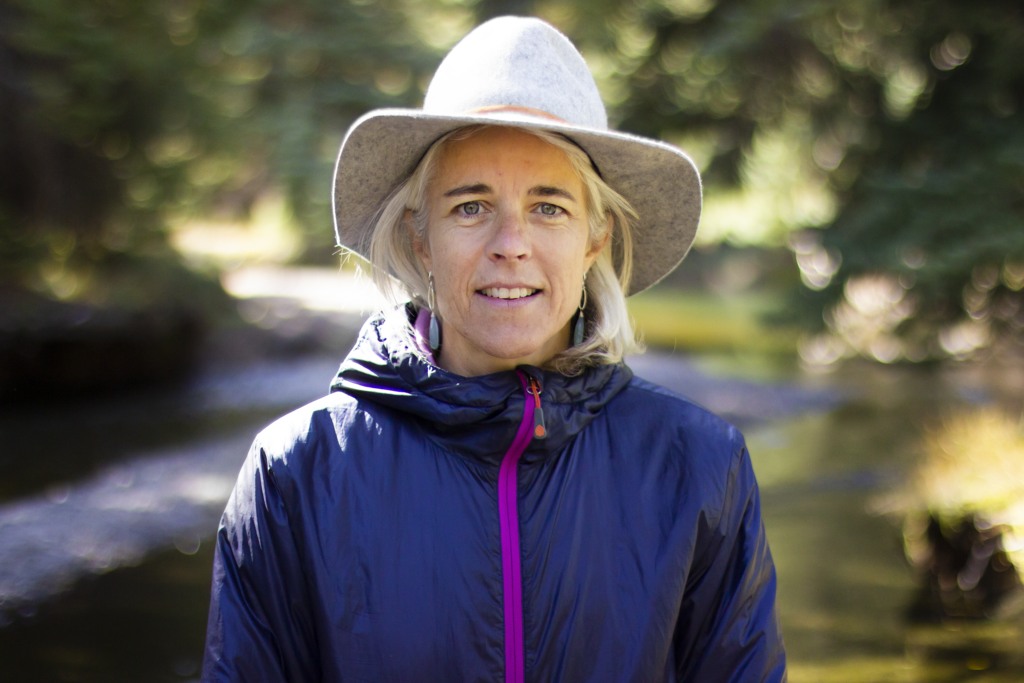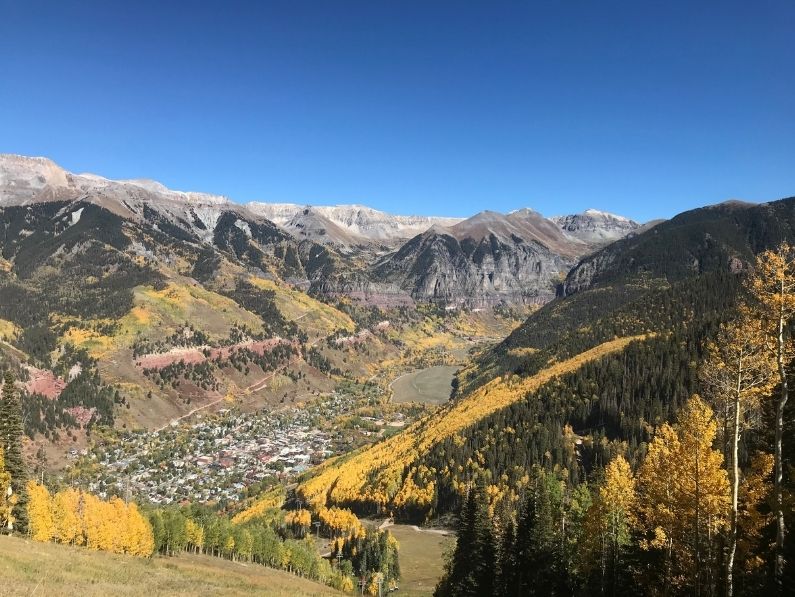Colorado saw its two largest forest fires in state history in 2020. This fall, the U.S. Drought Monitor classified the entire state as in drought. Colorado’s average temperature has risen by 2 degrees Celsius in recent decades. Scientists say all of these effects are caused by climate change.
While these statistics have an impact from an environmental standpoint, according to Hilary Cooper, they also affect the pocketbook of state and local governments.
“Our roads are deteriorating faster than they have in the past from extreme temperatures, and then, of course, the effects on our economy of extreme weather, and especially drought conditions and the effects that that has on the ski area’s ability to operate, and then also our farmers and ranchers,” Cooper said.
Cooper is a County Commissioner in San Miguel, a rural county in southwest Colorado–home to both ranching communities and mountain ski towns.

San Miguel County Commissioner Hilary Cooper. (Courtesy Photo)
Cooper says the changes in climate means the county needs to budget more money for climate mitigation, and she says they had a choice.
“Either we can go to our taxpayers and increase their taxes, or we can go to these companies who are making massive profits off of their sale of fossil fuels and make them accountable for at least a percentage of what it’s costing local governments,” she said.
San Miguel County went to the companies.
In 2018, San Miguel County, along with Boulder County and the City of Boulder–representing both urban and rural parts of the state–filed a lawsuit against ExxonMobil and Suncor Energy, to make them pay a portion of the price for climate mitigation on the local level. Exxon and Suncor are two of the largest fossil fuel companies working in Colorado.
Similar cases have been filed in California, New York, and Hawaii–to name a few–though none have been decided in court yet. But the Colorado lawsuit is the first to be filed by governments in a non-coastal state. Marco Simons, General Counsil at EarthRights International, and part of the legal team in the lawsuit, says they wanted to tell the story of climate change from a different perspective.
“It’s not just about sea-level rise, and it’s not just about coastal communities,” Simons said. “And there’s a range of climate impacts that are visible to many folks in Colorado, whether that’s the changes in precipitation and snowpack, the damage to forests, heat waves, wildfires.”
Simons says the first aim for winning the lawsuit is to collect damages for San Miguel and Boulder. But there’s a secondary aim too.
His hope is that. by shifting the costs of producing the costs of fossil fuels onto the companies, the lawsuits can also shift behavior.
“Whether that’s cutting back on the harmful activities, and/or to raise the price of the products that are causing those harmful effects so that if they are continuing to sell fossil fuels, that the cost of the harms of those fossil fuels would ultimately get priced into them,” Simons said.
The litigation process is long. Filed two years ago, the Colorado case still hasn’t been approved for a trial. But policy experts say such lawsuits are having an impact already. They note as the court cases progress oil and gas companies may find they’re losing something vital to do business, their social license to operate, or acceptance and trust from the general public.
Attorneys representing ExxonMobil and Suncor in the lawsuit did not respond for comment, neither did Suncor Energy. Exxon spokesperson Casey Norton commented in an email that lawsuits such as the one in Colorado “waste millions of dollars of taxpayer money and do nothing to advance meaningful actions that reduce the risks of climate change”.
But with a loss of social license, oil and gas companies might be forced to change direction, or risk losing investment. That’s according to Patrick Parenteau, a professor of environmental law and former lawyer with the Environmental Protection Agency. He says the banks that finance the oil and gas companies are looking at the rising number of lawsuits.
“And of course they’re looking at the science, and they’re beginning to get nervous,” Parenteau said. “You can begin to see that the financial institutions are going to be disinvesting in oil and gas and reinvesting in renewables, so I think these cases could actually result in a major disinvestment in these companies that will push the energy transition that we’re seeing already even faster.”
Time will tell if the tides are turning on the oil and gas industry. Until then, San Miguel and Boulder Counties, the City of Boulder, and all their residents will be stuck with the bill.






